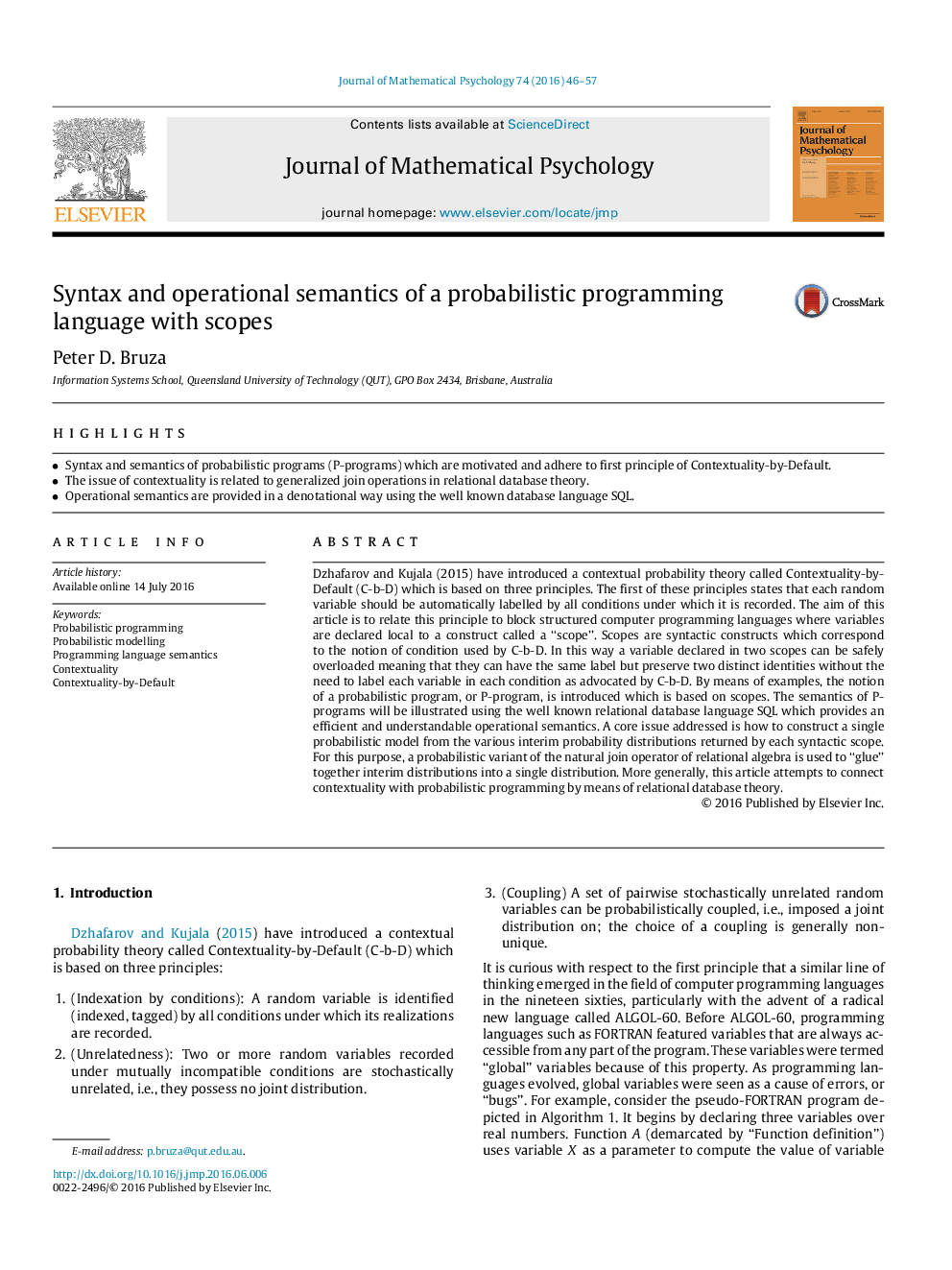| کد مقاله | کد نشریه | سال انتشار | مقاله انگلیسی | نسخه تمام متن |
|---|---|---|---|---|
| 4931852 | 1433264 | 2016 | 12 صفحه PDF | دانلود رایگان |
عنوان انگلیسی مقاله ISI
Syntax and operational semantics of a probabilistic programming language with scopes
ترجمه فارسی عنوان
نحو و معانی عملیاتی یک زبان برنامه نویسی احتمالی با حوزه
دانلود مقاله + سفارش ترجمه
دانلود مقاله ISI انگلیسی
رایگان برای ایرانیان
کلمات کلیدی
برنامه ریزی احتمالی، مدل سازی احتمالی، معانی زبان برنامه نویسی، محتمل بودن، متنی-به-پیش فرض،
موضوعات مرتبط
مهندسی و علوم پایه
ریاضیات
ریاضیات کاربردی
چکیده انگلیسی
Dzhafarov and Kujala (2015) have introduced a contextual probability theory called Contextuality-by-Default (C-b-D) which is based on three principles. The first of these principles states that each random variable should be automatically labelled by all conditions under which it is recorded. The aim of this article is to relate this principle to block structured computer programming languages where variables are declared local to a construct called a “scope”. Scopes are syntactic constructs which correspond to the notion of condition used by C-b-D. In this way a variable declared in two scopes can be safely overloaded meaning that they can have the same label but preserve two distinct identities without the need to label each variable in each condition as advocated by C-b-D. By means of examples, the notion of a probabilistic program, or P-program, is introduced which is based on scopes. The semantics of P-programs will be illustrated using the well known relational database language SQL which provides an efficient and understandable operational semantics. A core issue addressed is how to construct a single probabilistic model from the various interim probability distributions returned by each syntactic scope. For this purpose, a probabilistic variant of the natural join operator of relational algebra is used to “glue” together interim distributions into a single distribution. More generally, this article attempts to connect contextuality with probabilistic programming by means of relational database theory.
ناشر
Database: Elsevier - ScienceDirect (ساینس دایرکت)
Journal: Journal of Mathematical Psychology - Volume 74, October 2016, Pages 46-57
Journal: Journal of Mathematical Psychology - Volume 74, October 2016, Pages 46-57
نویسندگان
Peter D. Bruza,
